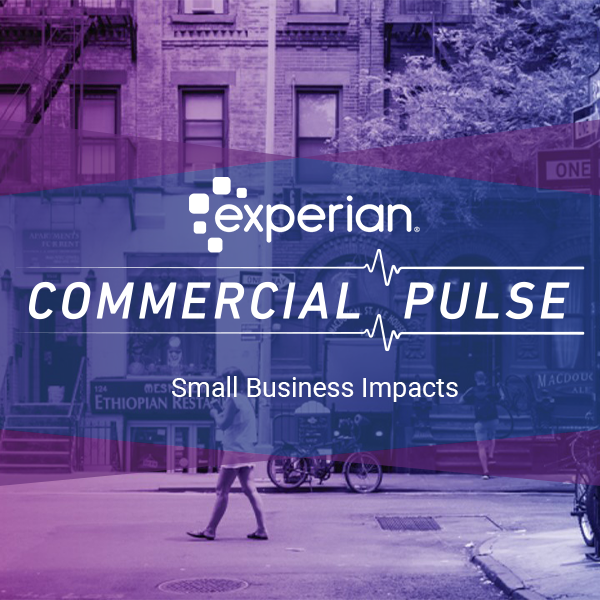At A Glance
How unified fraud and credit scoring accelerate onboarding while reducing risk.In today’s digital economy, businesses face a dual challenge: onboarding legitimate customers quickly while keeping fraudsters out. As commercial fraud becomes more sophisticated, the need for integrated fraud and credit scoring has never been more urgent. Scoring systems that unify these two dimensions—creditworthiness and fraud risk—are transforming how financial institutions, insurers, and commercial lenders evaluate new accounts and protect their portfolios.
Why does scoring for credit and fraud really matter for B2B creditors?
The surge in small business formation, artificial intelligence (AI) adoption and mutating forms of fraud have reshaped the risk landscape for business creditors in a myriad of ways. The spike in new business formation since 2020 is a trend that’s expected to remain permanently elevated, with the adoption of AI as a catalyst for small business startups and growth.
U.S. Census Bureau data shows that since July 2020, a seasonally adjusted average of 441K new businesses opened each month, 51% higher than the pre-pandemic 2018–2019 monthly average. In July, 2025, 471K new businesses launched, an increase of 13K (2.9%) from June 2025.
The trend of new small business formation remains elevated. This could be a result of lower startup costs from AI adoption, allowing new businesses to scale with less expense. As AI has scaled and evolved, fraud in the business arena has scaled too. Most small businesses lack credit history, and traditional risk models struggle to evaluate these businesses, let alone check for fraud signals. Traditional models are no longer sufficient to evaluate this evolving risk environment, calling for a more holistic approach to risk evaluation.
How does bridging the gap in credit demand create a path for fraudsters to exploit bigger payouts?
• 46% of small business loan applications showed signs of first-party fraud (e.g., misrepresented revenue or business details).1
• AI-driven scams are projected to cause $40 billion in losses by 2027.1
• 80% of fraud events now occur via digital channels such as online or mobile banking.1

Businesses that have been active for less than 2 years account for a growing portion of newly opened commercial accounts. They averaged 27% of new accounts in 2020 and grew to over 40% of new accounts in 2023 and 2024.
Experian, Commercial Pulse Report, 2025
The data from Experian’s Commercial Pulse Report, underscores a critical truth: traditional credit scoring alone is no longer sufficient in determining whether a business customer is creditworthy. Fraud scoring adds a vital layer of insight, helping to predict the likelihood of early payment defaults, identify synthetic identity elements, and prevent business impersonation before they become costly problems. Creating a unified approach to scoring applicants for both credit and fraud during the account onboarding process, or at other key milestones, is a vital strategy to identify creditworthy business customers.
Experian’s Fraud Investigation Report, available within BusinessIQ 2.0, exemplifies the power of combining fraud and credit scoring. It integrates three best-in-class tools:
• Multipoint Verification: a next-generation business verification tool powered by blended credit bureau data and non-traditional sources to calculate risk with explainable, machine-learned models, to provide creditors with better insights on their commercial customers.
• Business ID Theft Score™: this score leverages the breadth and depth of Experian’s 28M+ business records to reliably predict the probability of identity theft and third-party fraud in commercial accounts to help streamline application processing.
• Commercial First-Party Fraud Score: a machine-learned model that uses blended consumer and commercial attributes to deliver an actionable score that reliably predicts the likelihood of first payment default and credit abuse in commercial applications.
Together, these scores are combined into one report to provide a holistic view of both the individual and the business entity at account origination. This “one partner, one platform” approach streamlines onboarding and risk evaluation, enabling faster, more confident decisions.
Experian’s scoring tools are designed to meet the unique challenges of each industry:
- Financial institutions and banks
These organizations face high volumes of account applications and must balance speed with security. Integrated scoring helps detect synthetic identities and credit abuse early, reducing exposure to default and fraud losses. - FinTech and online lenders
Operating in fast-paced digital environments, FinTech firms benefit from real-time fraud scoring that flags suspicious email usage, mismatched business data, and identity inconsistencies—without slowing down onboarding. - Insurance providers
Fraud scoring supports underwriting by identifying high-risk entities before policy issuance. For teams, it provides post-sale fraud indicators that streamline investigations and improve claims accuracy. - Merchant cash advance and equipment finance firms
These sectors often deal with small businesses and startups, where traditional credit data may be limited. Fraud scoring fills the gap by verifying business legitimacy and ownership connections. - Manufacturing, construction, and freight logistics firms
These industries rely heavily on trade credit. Integrated scoring helps differentiate between legitimate businesses and shell companies, reducing the risk of non-payment and fraud. - Telecom, energy, and utility providers
With a large customer base and recurring billing, these sectors benefit from fraud scoring that flags anomalies in business identity and payment behavior—helping prevent revenue leakage.
Why do data silos within organizations lead to more fraud risk?
One of the biggest challenges in fraud detection is fragmentation of data. Risk signals are often scattered across systems, requiring manual reviews and cross-referencing that slow down operations and introduce inconsistencies. Experian’s Fraud Investigation Report breaks down these silos, delivering consistent, actionable insights into a single report that can be compared easily along with the business’ credit report.
This not only improves operational efficiency but also enhances the ability to audit and fulfill compliance requirements— a critical need for regulated industries like banking and insurance.
How to gain speed in approving new customer accounts and credit terms
The ability to quickly approve or deny credit terms is important, especially when evaluating new accounts. Experian’s Fraud Investigation Report can reduce fraud evaluation time by up to 50%, eliminating the need to consult multiple sources or conduct manual searches. Now firms can review trusted information from a single report instead of relying on Google to verify business legitimacy, users get instant indicators like vacant address fields, recent email use across multiple credit applications, and mismatched email age versus company age. These insights are powered by machine-learned models that differentiate between first-party, third-party, and synthetic fraud with high precision.
How scoring for both fraud and credit risk can support strategic goals across the entire organization
Experian’s fraud and credit scores can deliver a wide range of benefits across the organization. C-suite executives need a comprehensive view of enterprise risk to help make strategic plans that will affect the future of their firm. A combined approach to scoring commercial customers can provide a consistent framework for evaluating fraud and credit risk, supporting strategic decisions and regulatory compliance.
Directors or Vice Presidents of fraud and credit are tasked with reducing losses and improving operational efficiency. Integrated scoring helps them identify fraud earlier, reduce manual reviews, and streamline workflows. Finding more efficiencies in these areas can allow firms to hold less cash in reserve for bad debt or enable more budget to be put towards innovation to stay competitive.
Analytical, data sciences, or finance executives can benefit from scored data that can be fed into predictive models and financial forecasts, offering laser precise accuracy. With better data that offers unified insights, analytics teams can better segment risk, optimize portfolios, and support data-driven planning.
Commercial underwriters and fraud investigation teams can benefit from pre-sale fraud indicators that improve policy accuracy. Investigation teams can use post-sale scoring to investigate claims and detect fraud patterns more efficiently, removing the risk of human error and reducing time spent on each claim.
Credit managers and portfolio analysts rely on consistent scoring to assess repayment likelihood and monitor portfolio health. Unified reports reduce ambiguity and support confident decision-making. Procurement and purchasing leaders need to verify supplier legitimacy. Fraud scoring helps ensure that vendors are who they claim to be—reducing supply chain risk.
Inconsistent scoring can lead to biased decisions, missed fraud signals, and lost revenue. Experian’s unified report ensures that credit managers receive the same set of insights across every activity, removing ambiguity and supporting confident evaluations. Consistency in data is especially valuable for users less familiar with signs of fraud. Visual design elements can help professionals at any level of seniority making the
The proof of the Fraud Investigation Report’s value can be seen within the real-world impact it creates. Experian’s scoring model isn’t just theoretical—it delivers measurable results with 1.6x fraud detection vs. credit scores alone, 80% business verification rate as a standalone solution, and up to 59% fraud capture at a 20% review rate. These metrics demonstrate how combined scoring for fraud and credit within a single report, can dramatically improve fraud detection while maintaining a smooth customer experience.
Why do you need a layered B2B credit strategy that checks for fraud?
Layered threats require a layered strategy to combat risk, and the most effective defense is multi-dimensional. Using a score for credit risk is just one layer—but it’s foundational. When combined with scoring for fraud signals that include identity verification, behavioral analytics, and orchestration tools, a robust framework that adapts to evolving threats is created. Layered strategies also allow for dynamic friction—applying the right level of scrutiny at the right time. This ensures that legitimate customers enjoy a seamless experience while suspicious activity is flagged for deeper review.
The future of fraud prevention lies in automation and predictive intelligence. Experian’s scoring models are built to scale, leveraging explainable machine learned models to continuously improve accuracy and adapt to new fraud patterns. As businesses embrace digital transformation, integrated scoring will become a cornerstone of smart onboarding, risk management, and customer trust. Fraud and credit scoring are no longer separate disciplines—they’re two sides of the same coin. By unifying these insights, businesses can detect fraud faster, make smarter credit decisions, and build resilient portfolios. Experian’s Fraud Investigation Report is leading the way, offering a streamlined, data-rich solution that empowers organizations to act with speed, confidence, and precision.
